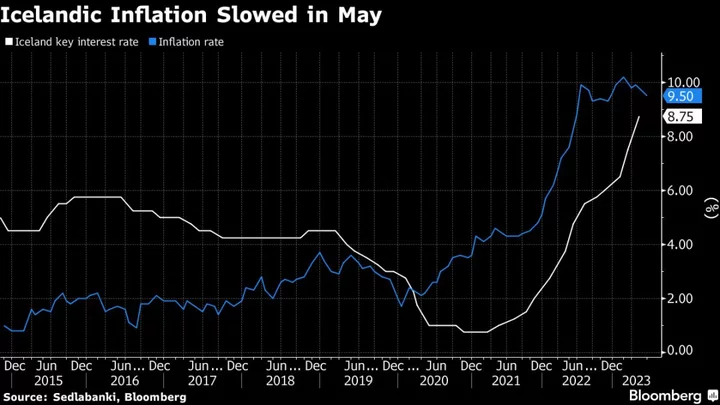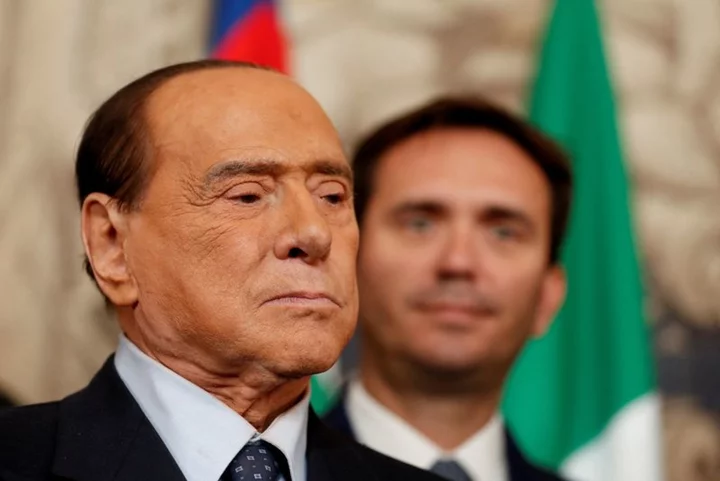Iceland’s labor market parties must rein in wage growth to help slow interest rate hikes, according to the central banker in charge of western Europe’s most aggressive monetary tightening campaign.
“We are a country of consensus and so far we have not been able to reach consensus with the labor market on minimal wage growth,” central bank Governor Asgeir Jonsson said on Friday in an interview in Dubrovnik, Croatia. “The future rate hikes depend on whether we will be able to reach a consensus on the labor market.”
Policy makers in the north Atlantic nation unexpectedly accelerated tightening earlier this week with their biggest increase since October 2008, citing the risk of a wage-price spiral that’s partly due to higher-than-expected pay agreements signed earlier this year.
The recent wage deals expire at the start of 2024, with the pace of inflation depending on the results of the upcoming negotiations, the central bank said this week.
Read More: Iceland Hikes to at Least 10% Can’t Be Ruled Out, Governor Says
“The labor market is hot and contrary to other countries in Europe, the real wages in Iceland have not been declining with inflation, they have been kept up with nominal wages increase which in turn is feeding the inflation,” Jonsson said. Consumer price growth slowed to its lowest pace in six months in May, at 9.5%, according to data released earlier on Friday.
While Icelandic real wages shrank marginally last year, they’ve still gained an average 2% a year from the onset of the pandemic, compared with contractions of 1% and 0.3% in other European countries and in the US, respectively, according to the central bank. Hourly wages are seen rising 9% this year, followed by an average gain of 6% in 2024-2025, it said this week.
The governor has previously signaled he is disappointed with the government’s expansionary fiscal policies, with the International Monetary Fund also urging spending curbs from next year. The housing market activity has also eased more slowly than the central bank expected, while tourism is booming and Icelandic fish and aluminum exports are helped by higher foreign demand boosting prices.
The latest monetary policy move “isn’t making me the most popular person in my country, but a forceful action was needed,” Jonsson said.









